News
Exploring gut health beyond probiotics
14 May 2018The idea of healthy gut bacteria has entered the mainstream, but the range of beneficial foods and ingredients for a healthy gut go far beyond probiotics.
Probiotics help feed the bacteria that make up our microbiome, the trillions of microorganisms that inhabit our bodies and influence our health. Probiotics have come a long way over the past ten years or so, and new technologies have allowed them to move out of the dairy aisle and into a wider range of products, including juices, infant formula, confectionery and baked goods. Interest in probiotics continues to be strong, and the global market is expected to grow 8% a year to reach $50 billion by 2020, according to BCC Research.

But the probiotics in our gut need food too. Despite technological advances, many bacteria in probiotic foods and supplements still are transient, and may not make it all the way through the acidic environment of the digestive tract to the large intestine.
Prebiotics on the other hand, help feed probiotics and ensure they are present in the gut for long enough to be beneficial.
In 2015, DSM launched a platform to present ingredients for gut health such as prebiotic fibres from oat beta-glucan, which help create an environment in which probiotics can thrive, and enzymes targeting specific gastro-intestinal concerns, such as sensitivities to gluten or lactose.
The promise of synbiotics
Prebiotics do not face the same shelf-life issues as probiotics, but one of the biggest hurdles to consumer acceptance is a lack of awareness about how prebiotics affect gut health. Researchers have suggested that prebiotics could be combined with probiotics, not only to improve their effectiveness, but to piggyback on consumer understanding of probiotics.
Studies looking at the effects of such combinations – known as synbiotics – are just emerging, but it looks likely that prebiotics are specific about the probiotics they feed, just as different probiotic strains affect specific gut bacteria. Sabinsa is among those working in synbiotics, and has developed a bilayer tablet designed to keep probiotic and prebiotic ingredients separate until they reach the gut.
Healthy gut lining
Meanwhile, a growing body of evidence suggests a combination of zinc and L-carnosine may improve the mucosal lining of the gastrointestinal tract, helping prevent gastric upset, and researchers are also looking at the amino acid tryptophan for its potential role in relieving symptoms of inflammatory bowel disease.
Many different ingredients for improved gut health can be added to foods and drinks, but they can be challenging for product developers. Probiotics and enzymes are sensitive to heat, light and oxygen, and adding too much fibre to a food or drink can give it an unappealing taste and texture.
Emerging evidence suggests the benefits of a healthy gut go far beyond healthy digestion alone, with some suggesting that poor gut health could be a contributing factor to depression, obesity, intestinal diseases and even some cancers. However, pro- and prebiotics do not provide the whole picture when it comes to digestive health, and our understanding of how to influence the gut microbiome is still in its infancy.
Considering that companies like Yakult and Danone were pivotal in bringing awareness of probiotics into the mainstream just a couple of decades ago, the sector looks set for rapid change – and growth – in the coming years.
Related news

BelliWelli secures funding for retail and team expansion
2 Jan 2025
US fibre brand BelliWelli has confirmed a further $10 million series B investment from Invus. The investment will help the company further expand its presence in the US.
Read more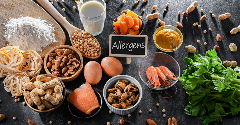
EU calls to harmonise allergen labelling increase
1 Jan 2025
Allergy awareness efforts focus on implementing a European reference laboratory and collaboration to standardise labels and support allergen identification.
Read more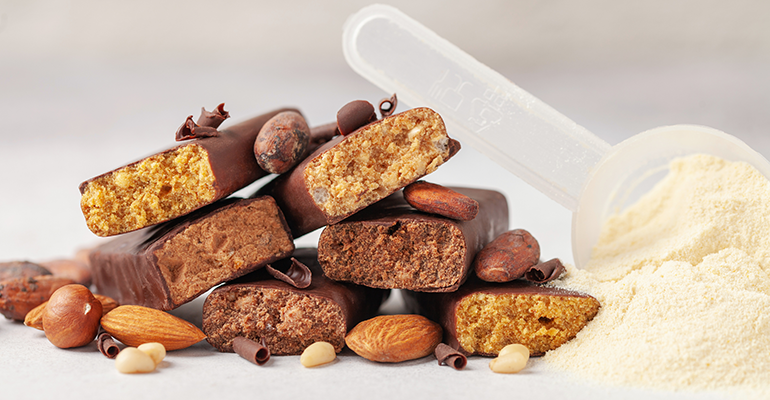
Japanese study points to risk of excessive nutritional fortification
31 Dec 2024
Fortified foods and supplements are mainly beneficial but there is a small risk of over-supplementation – particularly for vitamin B6, a Japanese study has concluded.
Read more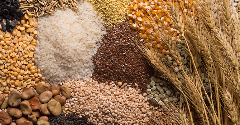
Is it time for a global definition of whole grain?
30 Dec 2024
Amid a lack of harmonisation, the European Food Information Council (EUFIC) is calling for a global definition of the term whole grain to end consumer confusion.
Read more
EFSA publishes new food additive research on non-nutritive sweetener saccharine
27 Dec 2024
The European Food Safety Authority (EFSA) has released new recommendations on saccharin and its sodium, potassium and calcium salts (E 954) as food additives.
Read more
FDA delivers workshop on nutrition regulation and science
19 Dec 2024
The FDA hosted a nutrition regulatory science workshop exploring ultra-processed foods and emerging technologies, aiming to spotlight the relationship between nutrition, science, and evidence-based policies.
Read more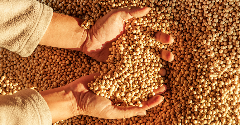
How US soy exports shape Southeast Asian food
19 Dec 2024
As Southeast Asia and the US mark 20 years of trade, trends in soy, especially plant-based preferences, signal increasing demand for high-quality protein sources.
Read more
Hormel Foods sells its Health Labs brands to Lyons Magnus
17 Dec 2024
Hormel Foods has confirmed the sale of its Hormel Health Labs division to Lyons Magnus, creating Lyons Health Labs. The strategic move aims to better position Lyons Magnus as a leading player in the growing US market for nutritional and health products...
Read more
Nestlé releases products for pregnancy and fertility
13 Dec 2024
Building on in-house research, existing scientific evidence, and consumer demands, the global food company has developed products designed for mothers and babies.
Read more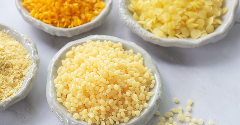
Consumer awareness and transparency key factors in shift to natural-based emulsifiers
11 Dec 2024
The demand for natural-based emulsifiers in the food industry is surging as health concerns over the use of synthetic emulsifiers have consumers looking for alternatives.
Read more